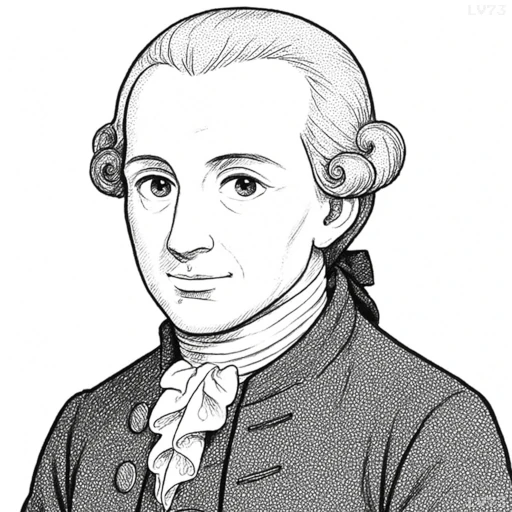“Live your life as though your every act were to become a universal law.”

- April 22, 1724 – February 12, 1804
- Born in Germany (East Prussia)
- Philosopher
table of contents
Quote
“Live your life as though your every act were to become a universal law.”
Explanation
This quote encapsulates one of the core principles of Immanuel Kant’s ethical philosophy: the categorical imperative. Kant argues that individuals should act in such a way that their actions could be universalized, meaning that they could be applied as a law for everyone to follow. This calls for moral consistency, where one’s behavior is guided by principles that are universally applicable, rather than based on personal desires or situational convenience. By imagining that each action could be made into a universal law, Kant asks individuals to consider whether their behavior respects the dignity and rights of others, and whether it could be endorsed by society as a whole without contradiction.
In modern times, this idea encourages us to think beyond our self-interest and to consider the broader impact of our actions. For instance, decisions such as whether to tell the truth or act with integrity can be evaluated using this lens: if it were universally accepted that lying was permissible in any situation, it would undermine trust and social cooperation. The quote pushes us to reflect on the ethical consequences of our actions in a world where individual choices can often have far-reaching effects. For example, issues like environmental responsibility and social justice can be examined through the lens of universalizability—asking whether it would be sustainable or just if everyone acted in the same way.
Historically, Kant’s emphasis on universality and moral duty represented a shift from earlier moral theories that often focused on consequences or personal happiness. In the context of the Enlightenment, when reason and universal principles were championed, this idea resonated with efforts to build moral systems based on rationality and universality, as opposed to subjective or culturally specific norms. Kant’s idea remains influential today, especially in discussions of human rights and global ethics, where the challenge is to create systems and laws that apply equally to all people, regardless of their background or circumstances. This quote continues to inspire individuals to act in ways that are consistent with their moral principles, seeking a more just and equitable world.
Would you like to share your impressions or related stories about this quote in the comments section?

